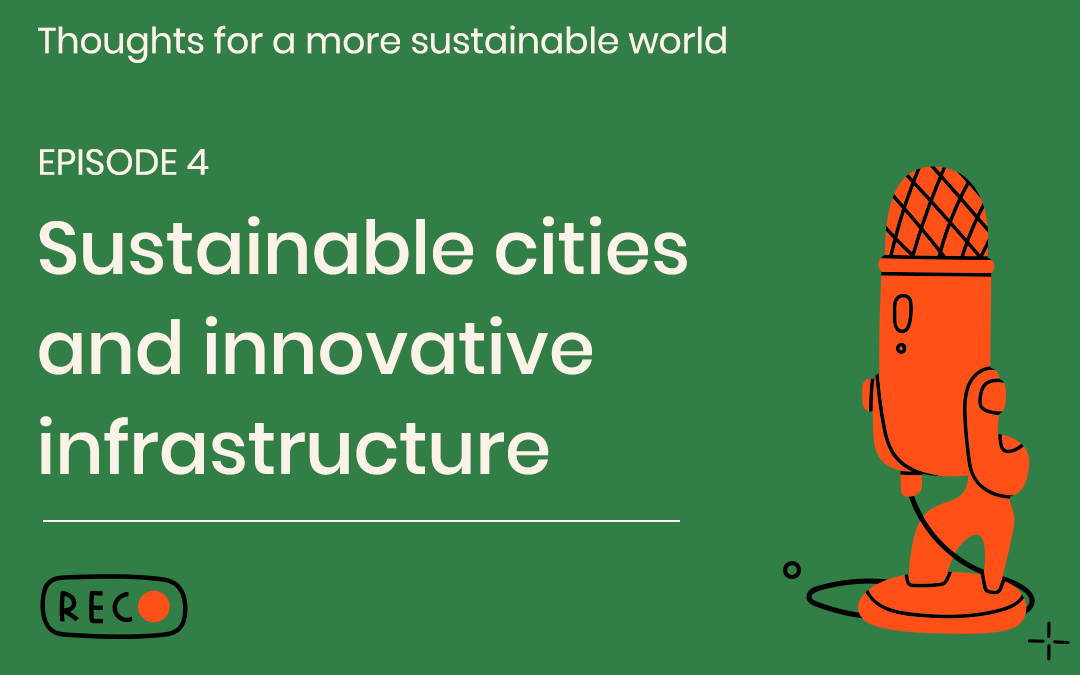E4 : sustainable cities and innovative infrastructure
Abstract
“City” is always a vital venue where interventions in sustainability could drastically happen, where carbon emission is also an important topic found in massive international conferences and various cities’ political agendas! Therefore, this podcast aims to bring a general perception of the current campaign of establishing sustainable cities (SDG #11) and innovative infrastructure (SDG #9, mainly Targets 9.1, 9.4, and 9.a). More importantly, we care about what the proposed and negotiated plans look like in different parts of the world and what the de facto citizens think about them!
In the podcast, the audience could obtain a broad perspective and a thorough and interesting explanation of what is now happening on this planet. First, in the COP26 (UN Climate Change Conference), which just ended, carbon emission was introduced as a critical initiative to both state and non-state actors. Then, a comparative case study was also conducted by explaining and interviewing two projects, Leuven 2030, Belgium, and Surabaya 2050, Indonesia, which are the cities in Global North and Global South, respectively. There will also be a brief concluding comment from a postdoctoral researcher, Yunpeng Zhang, in the relevant field.
As we promised, the podcast brought the insights that cities, in entirely different contexts, could have very similar ambitions in solving environmental issues, albeit the specific approaches and political contexts are somewhat different.
Nevertheless, a sustainable city or infrastructure is never a simply environmental problem. From our research, the environmental and economic dimensions can be found as prioritized in the plans; however, as the expert stated at the end of the podcast, the social dimension is now overlooked and should certainly be essential. Besides technological improvement, the reconsideration of society, like social innovation, rural areas, and marginalized people, should be paid more attention in the future.
References
Weblinks & References
https://sdgs.un.org/goals
https://buildingtocop.org
https://www.leuven2030.be
https://freemusicarchive.org/
Quinio, V. (2021) Cities and Built Environment Day at COP26: what should it be about? Centre for Cities. Retrieved from: https://www.centreforcities.org/blog/cities-and-built-environment-day-at-cop26/
Building Ambition: The future of the built environment poest COP26. (2021). Building TO COP26. Retrieved from: https://buildingtocop.org/2021/11/19/building-ambition-high-level-diplomacy-at-cop26-and-the-built-environment/
COP26 to Break Ground for Zero Carbon Buildings Future. (2021). IISD & SDG Knowledge Hub. Retrieved from: https://sdg.iisd.org/commentary/guest-articles/cop26-to-break-ground-for-zero-carbon-buildings-future/
Glasgow Breakthroughs. (2020). UNFCC. Retrieved from: https://racetozero.unfccc.int/system/glasgow-breakthroughs/
FY2014 “Large-scale JCM Development Programme for Low Carbon Society in Asia”: Low Carbon City Planning Project in Surabaya, Indonesia. (2014). Institute for Global Environmental Strategies. Retrieved from: https://www.env.go.jp/earth/coop/lowcarbon-asia/english/project/data/EN_IDN_2014_02.pdf
The Joint Crediting Mechanism. (undated). JCM Indonesia – Japan. Retrieved from: https://www.jcm.go.jp/id-ip
Indonesia Long-Term Strategy for Low Carbon and Climate Resilience 2050. (2021). UNFCC. Retrieved from: https://unfccc.int/sites/default/files/resource/Indonesia_LTS-LCCR_2021.pdf
2000watt Website. (undated). 2000-Watt society and 2000-Watt Site. Retrieved from: https://www.2000watt.swiss/english.html
Credits
Section Leuven 2030 and ‘Sustainable City’
- Students in Leuven:
- Lennert
- Dieter
- Timo
Section Surabaya 2050
- Students from Indonesia:
- Mudita
- Azoura
Expert’s comment/conclusion
- Yunpeng Zhang
